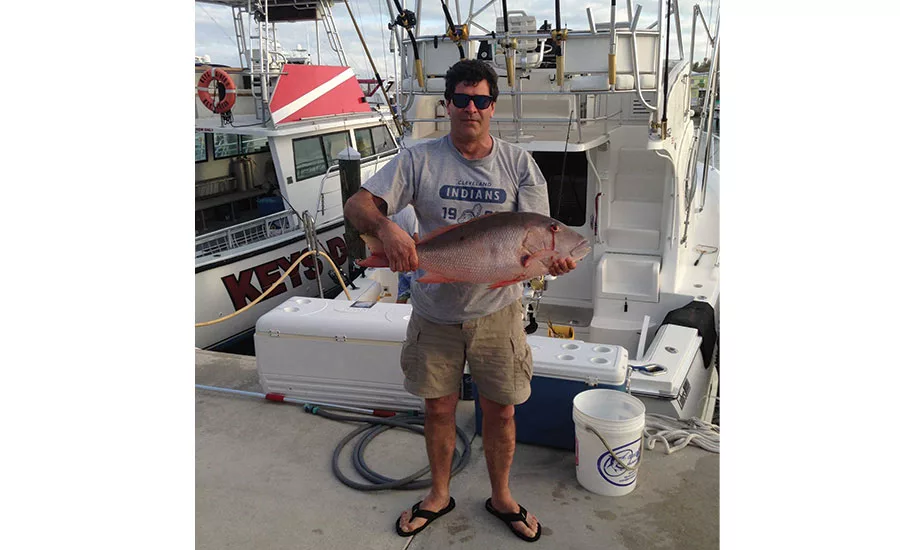You Know the Drill: A Long History of Drilling

In his spare time, Wright enjoys fishing, hunting, target shooting and traveling.
Source: Stephen Wright
For many out there, 85 is an age that equals wisdom, experience and change. Frontz Drilling Inc., of Wooster, Ohio, knows what that feels like.
The company, a full service water well and environmental drilling operation, has been family owned and operated since 1933. Founded by E.E. Frontz in Jefferson, Ohio, Frontz Drilling Inc., started when Frontz drilled the first well in his barn using a homemade drill rig that he had built himself. He then started doing the same for several of his neighbors.
Since its founding, the company has drilled more than 25,000 wells and installed over 10,000 water well systems. They even drilled the first elevator shaft in Wooster back in 1965.
Frontz Drilling expanded its services in the ’70s and ’80s and, in 1991, the company added an environmental division. They hired Stephen R. Wright as their environmental services manager as they expanded their reach to complete projects in nearly every state east of the Mississippi River.
“When I came [to Frontz], they had one auger rig and the environmental drilling portion of the company was just getting started,” Wright says. “We now operate four sonic rigs, two hollow stem auger rigs and a Geoprobe.”
Wright graduated from Akron University in 1983 with a degree in geology. He worked as a staff geologist for an environmental consulting firm in Toledo, Ohio, before joining Frontz. Over the years, he’s come to appreciate the company for their care in doing a great job for their customers, whether they’re a homeowner, consulting firm or large company.
“The last 27 years have been a great ride. I have met many wonderful people, and the people I work with every day are great too,” he says. “Life is short; I realize this more each day. If you can make a difference or improve things in any way, it is always best to try to do just that.”
Q: What do you do, and what keeps you coming back every day?
A: My division does environmental, geotechnical, some water supply and any other type of weird drilling project that no one else wants to perform. Most of the time, I enjoy the great team of people that I work with, my clients and all of the other people that cross my path in this line of work. Some days, I wonder what is wrong with me and why I do this.
The industry and the country in general have changed in the last 25 to 30 years that I have been in this line of work. It definitely is not as fun as it used to be. It’s harder to get things done, and you have to be the low bidder and then you have to fight to get paid. It’s not always that way, but I would rather work on projects, quotes, and help customers solve problems than fight to get paid and deal with the paperwork and regulations that inundate this industry.
Q: What does a typical workday involve?
A: A typical day involves writing proposals, talking to clients discussing projects and schedules, attending site meetings, looking for help and putting out fires.
Q: What does it take to succeed in what you do?
A: It takes good people to be successful in this business; people that can communicate with clients, have a strong work ethic, care about what they do and can take care of their equipment.
Q: What do you wish you knew when you started?
A: When I first started, I always worked hard, but not always smart. You are more productive by working smart. I wish I would have forgotten about work at certain times in the past. It’s healthy to walk away and forget about it sometimes. Things will always get done; it’s not the end of the world and other people’s lack of planning should not be my emergency.
Q: What tool can you not imagine working without?
A: Definitely a smartphone. I can do about anything I need to from about anywhere with the phone these days. Often a more formal document will need to be generated with a computer at a later date, but the phone is critical.
Q: What’s the best piece of advice you’ve been given?
A: Always treat others the way you would want to be treated.
Q: How would you describe the present state of the industry?
A: I think the industry is strong. There seems to be plenty of work, but finding help is very difficult — much more difficult than it used to be. That is certainly one of the biggest challenges in the industry that I see.
Safety has always been important to our company. The safety philosophy has changed in the industry almost to the point of being impractical. What I mean by that statement is that the hours of mandatory training we are required to undergo have nothing at all to do with what we do. The hours of safety training that preach what we can and can’t do on a jobsite — or if we do this or that, we will be thrown off — then you see the company that just gave the training doing all the things they just told us we can’t do.
Common sense, awareness and experience are the best safety tools in this industry. Unfortunately, they are not allowed or recognized because they do not come with a certificate. I am all for safety, but to some degree some safety mandates and training have become nonsensical in order for boxes to be checked and lawyers and insurance companies to be satisfied.
Looking for a reprint of this article?
From high-res PDFs to custom plaques, order your copy today!






